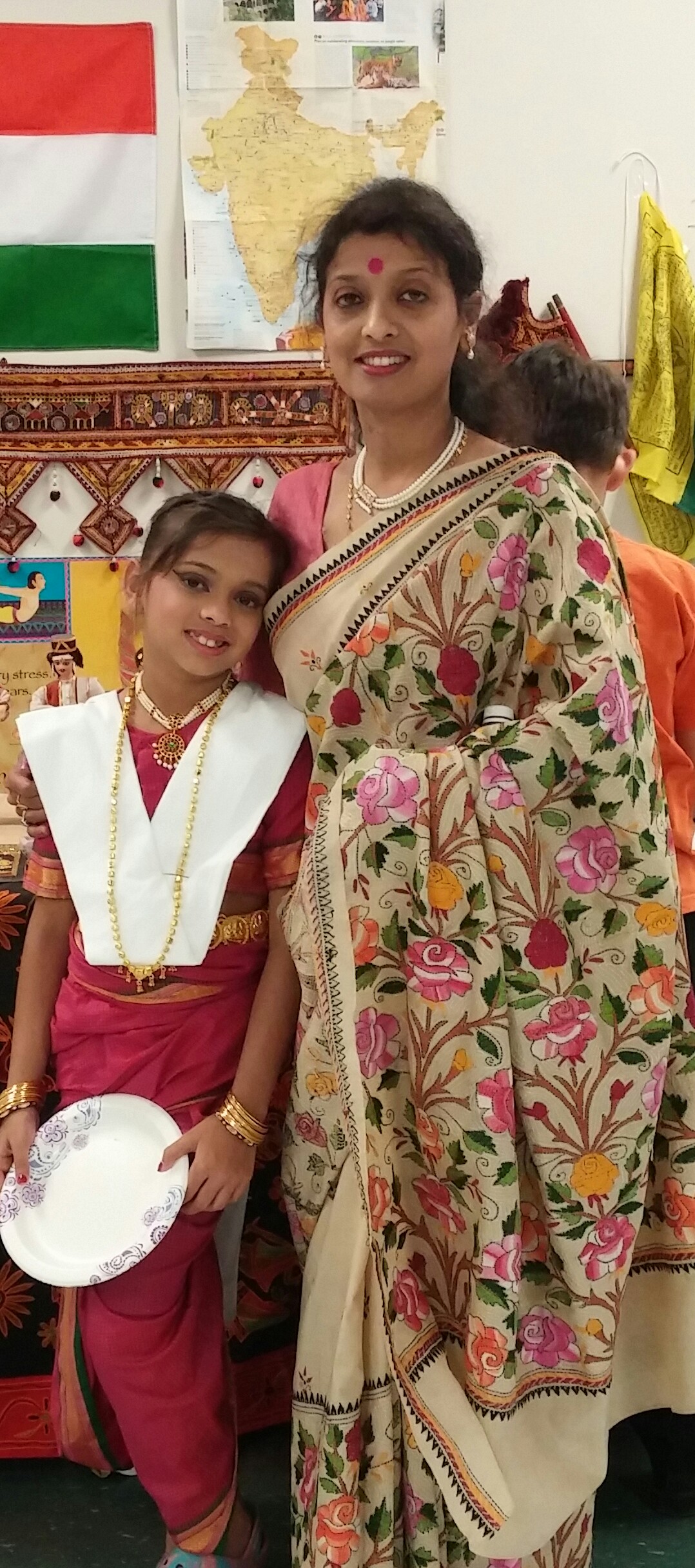Aatmajaa- my daughters, my soul
‘ Your children are not your children.
..
they come through you but not from you,
And though they are with you yet they belong not to you.”
– ‘The Prophet’ Kahlil Gibran
I first read these lines in Madhukoree, a Bengali novel by my favourite writer Buddhadeb Guha. How old was I ..fourteen or fifteen perhaps? Those were the feverish teenage years of my life..whena desperate romantic fervor to fall in love with someone , or anyone, started defining me. There was this urge to be this special woman..like the mystique Bonolota Sen in Jeebonananda Das s poetry . Bengali literature had no dearth of these amazingly ethereal women- Tagore, Bankimchandra, Saratchandra, Sunil Ganguli, Sirshendu, Samaresh Basu, Buddhadeb Guha, Bimal Mitra- the list goes on and on- they illustrated them everywhere.. Somehow, they all came alive in my imaginations in brilliant sarees, as lovers, wives, mothers, grandmothers, or sisters. I wanted to be like them. In fact, I would quietly, unconsciously slip into the pages of the novel in hand and for the next few days would become the lead protagonist.
And then, just like a miracle unfolding, I was holding my first born in my arms. That day, when the doctor announced, “Congratulations, it’s a girl!” I sobbed happy tears. Mother of a daughter- another woman in the making! After all these years, having seen life and death from very close quarters,I have come to realize, I am the heroine of my life. When my two daughters were born, they completed me. When I look at them today, I sense the invisible cord by which we will be bound together for eternity. My daughters, born nine years apart, have been teaching me how to live, to love, to nurture, to cherish, to cradle, to swathe, to hold, and most importantly, to let go. I have aged with them, matured with them. .. as I follow the footsteps of my mother and my grandmother.
It has been a beautiful life, watching my girls blossom, and I hope to be there with my heart and soul for them, forever.
That is who I truly am inside. A mother of daughters.
In a nokshi-kantha, a very traditional intricate kantha weave on tussar with my younger cherub (age 9) at the International Day celebration at her school. ..representing the unseen unending threads weaving the women together.

